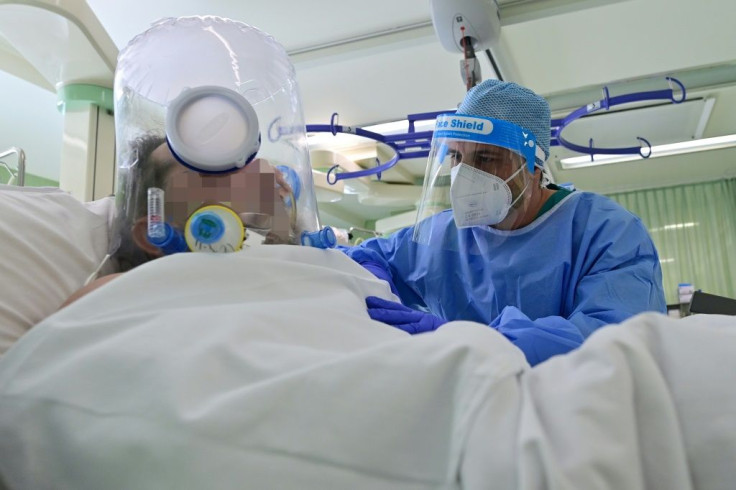Europe Detected Omicron Infections At Least 11 Days Before South Africa, New Testing Reveals
The Omicron COVID variant may have already been circulating in western Europe long before it was discovered in South Africa, according to new test results revealed by the Dutch RIVM National Institute for Public Health and the Environment on Tuesday.
According to the RIVM, Omicron samples were found from Nov. 19 and 23, indicating that the Omicron variant was present in Europe at least 11 days before South Africa alerted the world to the new coronavirus strain.
The RIVM said Tuesday, “It is not yet clear whether the people concerned [in the earlier cases] have also been to southern Africa.”
All individuals who tested positive for the Omicron variant have been informed of their infection status, and local health officials have started contract tracing with more testing to come, the health institute said.
On Nov. 26, an additional 14 people were found to have Omicron infections after testing at Schiphol Airport in Amsterdam, the agency said.
The Netherlands is not the only country to confirm Omicron infections that predate South Africa’s cases. Belgium and Germany reported sample tests in their countries prior to South Africa’s detection and warning to the world last week, CBS News reported.
The Omicron variant has spread to at least 19 countries as concern grows over the fast mutating strain of COVID-19, but still little is known about the variant.
It is unclear if vaccines are effective against the Omicron variant, but Moderna's CEO told the Financial Times, “All the scientist[s] I’ve talked to … are like, ‘This is not going to be good.’ ”
The Centers for Disease Control and Prevention expanded its vaccine guidance on Monday, recommending that all U.S. adults get a booster dose.
Dr. Michael Osterholm, director of the Center for Infectious Disease Research and Policy at the University of Minnesota, told CBS News people need to take that advice.
He said, “People don't realize we're more susceptible today in this country as a whole because of the number of people who are now six, seven or eight months out who have not gotten their boosters and who are now starting to revert back to a much higher risk.”

© Copyright IBTimes 2024. All rights reserved.











